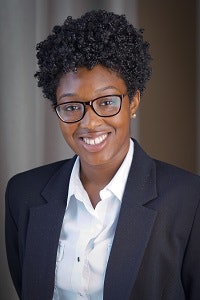What’s a family reunion without good food, karaoke, a mandatory Soul Train line, matching shirts, the critical spades tournament and all your favorite aunties, uncles, cousins and other relatives gathered in one location? This summer, I attended the best family reunion ever. But here’s the catch; none of us who attended the reunion were actually blood-related. In fact, most of us had never seen each other in our lives. However, the kinship was there from the start and we were definitely a family.
I mean, what is a family reunion anyway? To me, a family reunion is a gathering of people who love and care about each other and who are connected to one another in various ways. Usually, by the time you leave a family reunion, you learn something new about the family and about yourself. And you return home with lots of laughs, memories and a shared history.
The family reunion I attended this summer definitely had me in my feelings when I left, but what if I told you that the gathering I attended wasn’t an official family reunion at all? In fact, the Thurgood Marshall College Fund Teacher Quality and Retention Program Summer Institute is a professional development program designed specifically for pre-service and in-service teachers from HBCUs and PBIs across the nation. For the sake of conciseness, let’s call it the Annual TQRP Family Reunion.
 Tiyana Herring
Tiyana HerringBefore I dive into TQRP, it’s important to acknowledge the organization’s namesake, Justice Thurgood Marshall. Think of him as the patriarch of the family — the quintessential grandfather, the one who is the figurehead of the family, doesn’t get around as well as he did in his heyday, but is the gatekeeper for all things historical regarding the family. Thurgood Marshall is best known for being the first Black United States Supreme Court Justice, but his legacy is much deeper than the surface.
In 1987, the Thurgood Marshall College Fund was formed with the purpose of helping students who attend HBCUs and PBIs receive funds and opportunities that may not be available to young students of color otherwise.
The Teacher Quality and Retention Program is a fellowship within the Thurgood Marshall College Fund that provides high-caliber training to aspiring educators from HBCUs and PBIs from around the nation. TQRP provides high-quality, pre-service training, as well as personalized support once teachers enter the classroom. The fellowship lasts five years. The first-time fellows are typically college juniors or seniors, and the returning fellows (also known as the returners) are first, second, or third year teachers. Because the fellowship lasts five years, the influx of new ideas is never-ending. During the summer, TQRP offers an intense two-week institute designed to support scholars in the development of sound pedagogy, assist with developing and demonstrating research-based educational practices and help teachers analyze current educational policy – all with the goal of developing the skills needed to be future teacher leaders.
When I found out that I’d been selected as a fellow, I was elated but nervous about the unknown. All I knew was that I was going to Houston, Texas for two weeks for some type of teacher professional development. Little did I know, I was getting top-notch training in pedagogy by way of informative sessions on such topics as the 5 E Lesson Plan, classroom management, differentiated instruction, educational technology, teaching ELLs and many more. The sessions were all taught by veteran, highly-qualified classroom teachers who served as faculty. They were all very knowledgeable, willing to help and most importantly, current. It was comforting to know that the information provided was relevant to the 21st century classroom.
One important takeaway from the program was the level of positivity regarding our career choices. So often, I am pounded with negativity when I reveal to people that I am majoring in education— “You won’t get paid much,” “These kids now-a-days are awful,” “I would never do that,” or my personal favorite, “You’re such a smart young lady, why would you want to be a teacher?” At my own institution, I find comfort in my classmates and professors concerning my decision to become an educator, but at TQRP, there was an understood idea that teaching is our passion and although this is a challenging career, we have a responsibility to educate and empower our students to reach their full potential.
In addition to the valuable skills and knowledge, I also expanded the network of people that I consider my close friends, and even my family. After all the training during the day, I found myself wanting to spend even more time with the other fellows. Throughout the two weeks, we went to lunch and dinner together, had game nights and did partake in a round or two (or three) of karaoke. Much like the family reunion, the spades tournament got pretty heated — but it wouldn’t be a family reunion otherwise, right?
I spent the final days at TQRP dreading my departure. So many lessons learned. So many affirmations — my career choice, gender, culture, theoretical foundations — all considered assets rather than deficits in this space. I left knowing that I made authentic connections with genuine people. I know that if I am faced with a problem, whether it is in my own classroom, within my school, or even personal, I can reach out to my TQRP family and they are only a call, text, or Facebook message away.
Thank you TQRP for inviting me to the best family reunion EVER. See you next year!
Tiyana Herring is a senior majoring in Elementary Education at Florida A&M University. She is also a Thurgood Marshall College Fund TQRP Fellow and PURPOSE Fellow.















